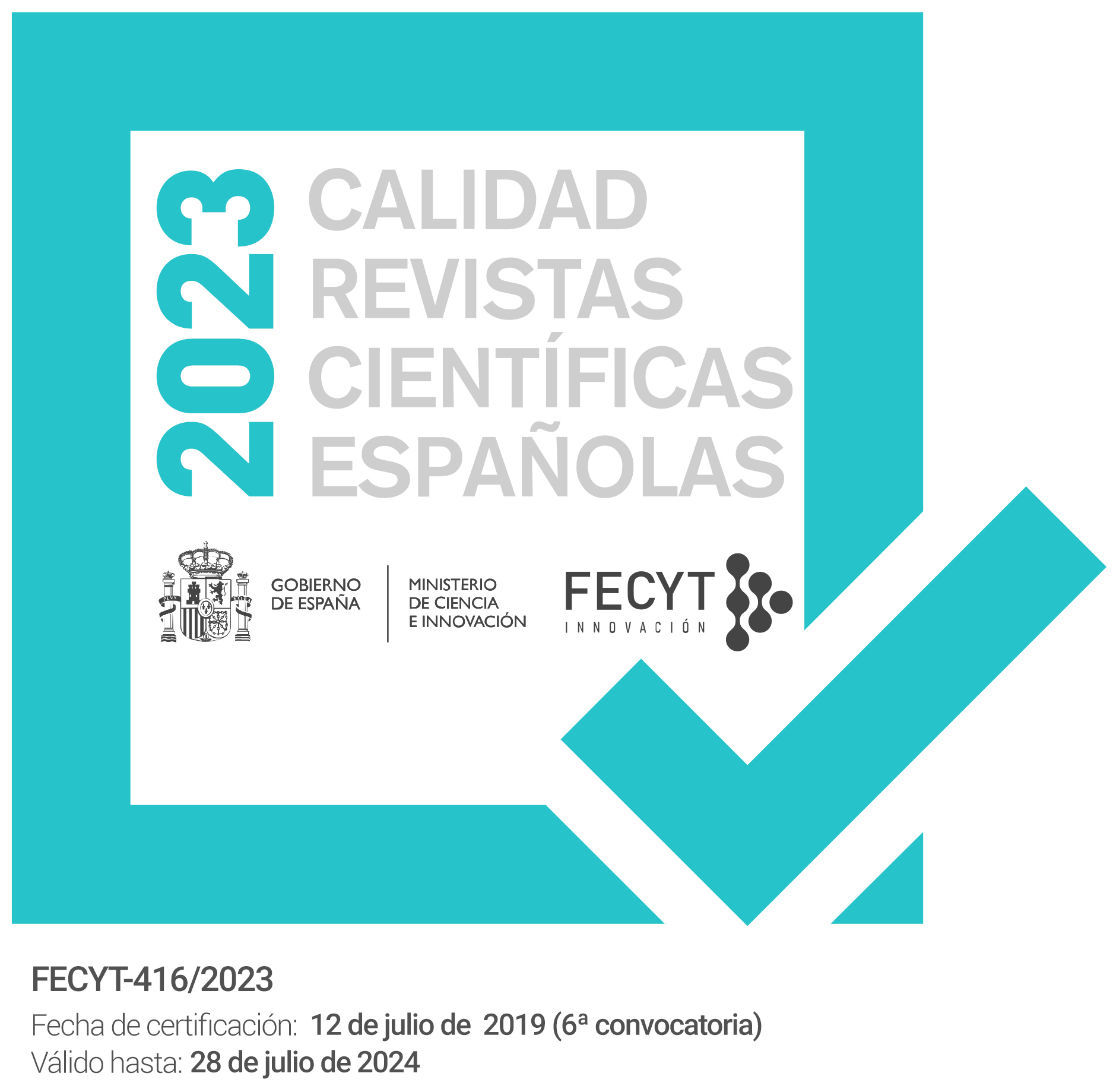Modelizaciones computacionales para la comprensión de fenómenos históricos y sociales
DOI:
https://doi.org/10.51349/veg.2023.1.01Palabras clave:
No tieneResumen
No tiene.
Descargas
Citas
AMMERMAN, A.J.; CAVALLI-SFORZA, L.L. (1984): The Neolithic Transition and the Genetics of Populations in Europe, Princeton University Press.
AXTELL, R.L.; EPSTEIN, J.M.; DEAN, J.S.; GUMERMAN, G.J.; SWEDLUND, A.C.; HARBURGER, J.; CHAKRAVARTY, S.; HAMMOND, R.; PARKER, J.; PARKER, M. (2002): Population growth and collapse in a multiagent model of the Kayenta Anasazi in Long House Valley, Proceedings of the National Academy of Sciences of the United States of America, 99 (Suppl. 3), 7275-7279. https://doi.org/10.1073/pnas.092080799
BEVAN, A. (2015): The data deluge. Antiquity, 89 (348): 1473-1484. https://doi.org/10.15184/aqy.2015.102
BONABEAU, E. (2002): Agent-based modeling: Methods and techniques for simulating human systems, Proceedings of the National Academy of Sciences, 99 (suppl. 3): 7280-7287. https://doi.org/10.1073/pnas.082080899
CEGIELSKI, W.H.; ROGERS, J.D. (2016): Rethinking the role of Agent-Based Modeling in archaeology, Journal of Anthropological Archaeology, 41: 283-298. https://doi.org/10.1016/j.jaa.2016.01.009
CHAPA, M. T. (1984): Aspectos metodológicos de la tipología arqueológica: Un ejemplo referido a las fíbulas de La Téne. En Primeras Jornadas de Metodología de Investigación Prehistórica: 253–268.
FORT, J.; MÉNDEZ, V. (1999): Time-Delayed Theory of the Neolithic Transition in Europe, Physical Review Letters, 82 (4): 867-870. https://doi.org/10.1103/PhysRevLett.82.867
GARCÍA ATIÉNZAR, G. (2008): Aplicaciones SIG en el análisis de las sociedades del pasado: Un caso de estudio: las primeras comunidades campesinas del Levante Peninsular, Panta Rei: Revista de Ciencia y Didáctica de La Historia, 3: 45-72. https://doi.org/10.6018/pantarei/2008/4
JANSSEN, M.A. (2009): Understanding artificial Anasazi, Journal of Artificial Societies and Social Simulation, 12 (4): 13. https://www.jasss.org/12/4/13.html
MARWICK, B. (2017): Computational Reproducibility in Archaeological Research: Basic Principles and a Case Study of Their Implementation», Journal of Archaeological Method and Theory, 24: 424-450. https://doi.org/10.1007/s10816-015-9272-9
O’BRIEN, M.J.; LEE LYMAN, R. (2003): Cladistics and Archaeology, University of Utah Press.
ORENGO, H.A.; GARCIA-MOLSOSA, A.; BERGANZO-BESGA, I.; LANDAUER, J.; ALIENDE, P.; TRES-MARTÍNEZ, S. (2021): New developments in drone-based automated surface survey: Towards a functional and effective survey system, Archaeological Prospection, 28 (4): 519-526. https://doi.org/10.1002/arp.1822
PALACIOS, O.; BARCELÓ, J.A.; DELGADO, R. (2022): Exploring the role of ecology and social organisation in agropastoral societies: A Bayesian network approach, PLOS ONE, 17 (10): e0276088. https://doi.org/10.1371/journal.pone.0276088
PARDO-GORDÓ, S.; BERNABEU, J.; JIMÉNEZ-PUERTO, J.; ARMERO, C.; GARCÍA-DONATO, G. (2022): The chronology of archaeological assemblages based on an automatic Bayesian procedure: Eastern Iberia as study case, Journal of Archaeological Science, 139: 105555. https://doi.org/10.1016/j.jas.2022.105555
ROZOY, J.-G. (1978): Les derniers chasseurs. L’Épipaleolithique en France et en Belgique. Essai de synthése, Bulletin de la société archéologique champenoise.
RUBIO-CAMPILLO, X.; BLE, E.; PUJOL, À.; SALA, R.; TAMBA, R. (2022): A Spatial Connectivity Approach to Landscapes of Conflict: Julius Caesar and the Assault to Puig Ciutat (NE Iberian Peninsula), Journal of Archaeological Method and Theory. https://doi.org/10.1007/s10816-022-09549-7
SHENNAN, S. (2012): Darwinian Cultural Evolution, en I. HODDER (ed.), Archaeological Theory Today, Polity Press, Cambridge: 15-37.
Descargas
Publicado
Número
Sección
Licencia
Derechos de autor 2023 Alfredo Cortell-Nicolau, Salvador Pardo-Gordó

Esta obra está bajo una licencia internacional Creative Commons Atribución-NoComercial-SinDerivadas 4.0.



